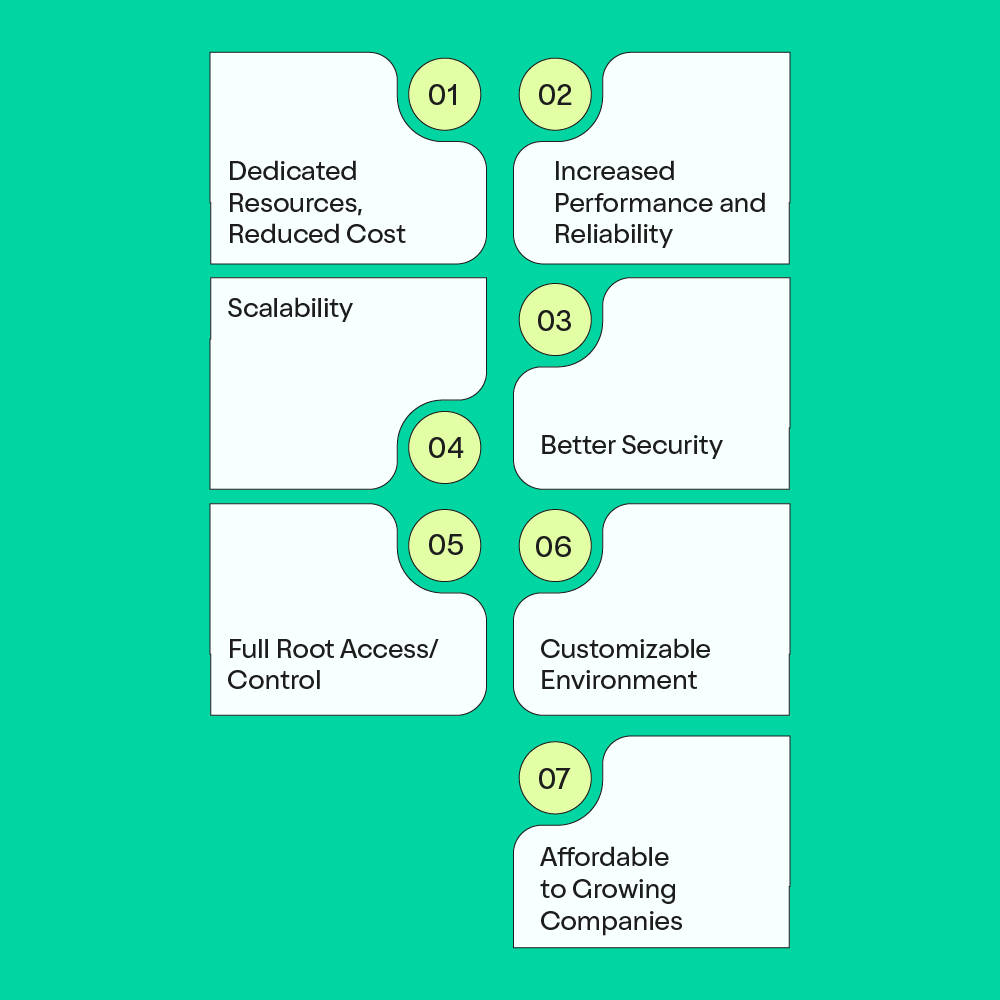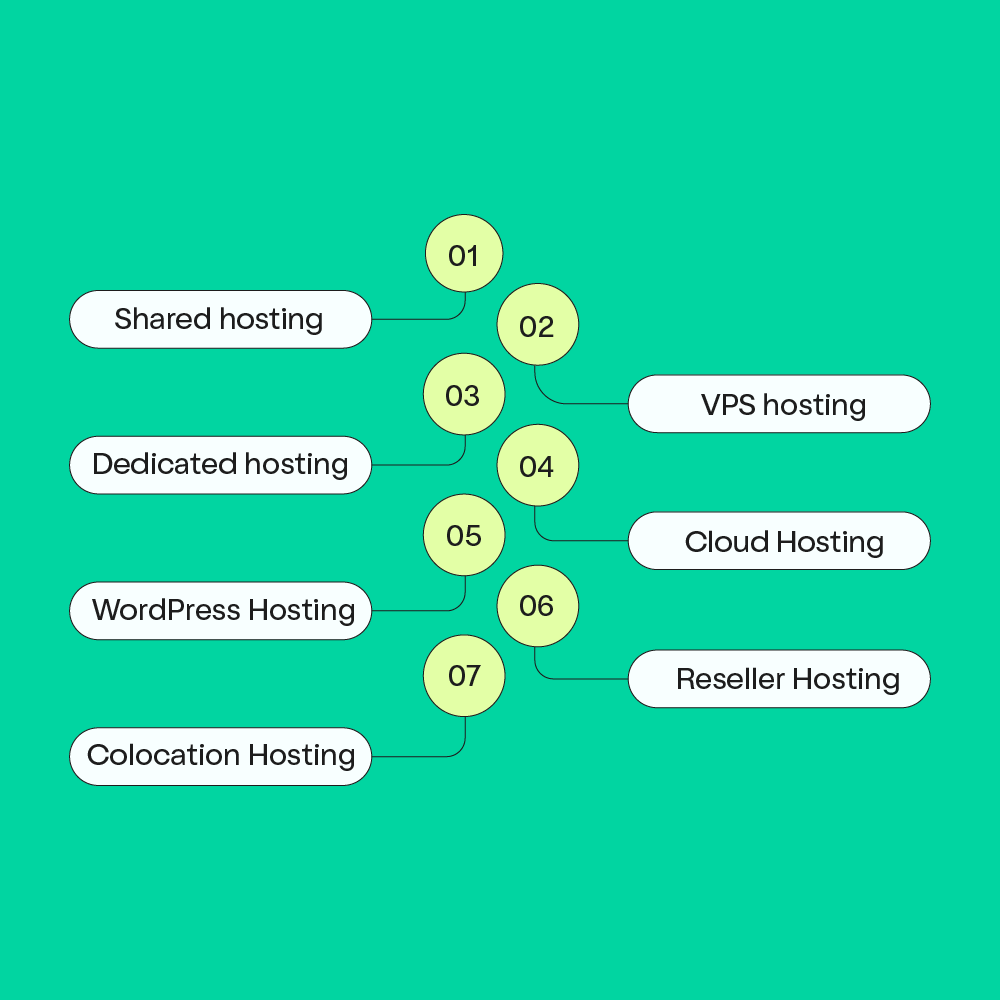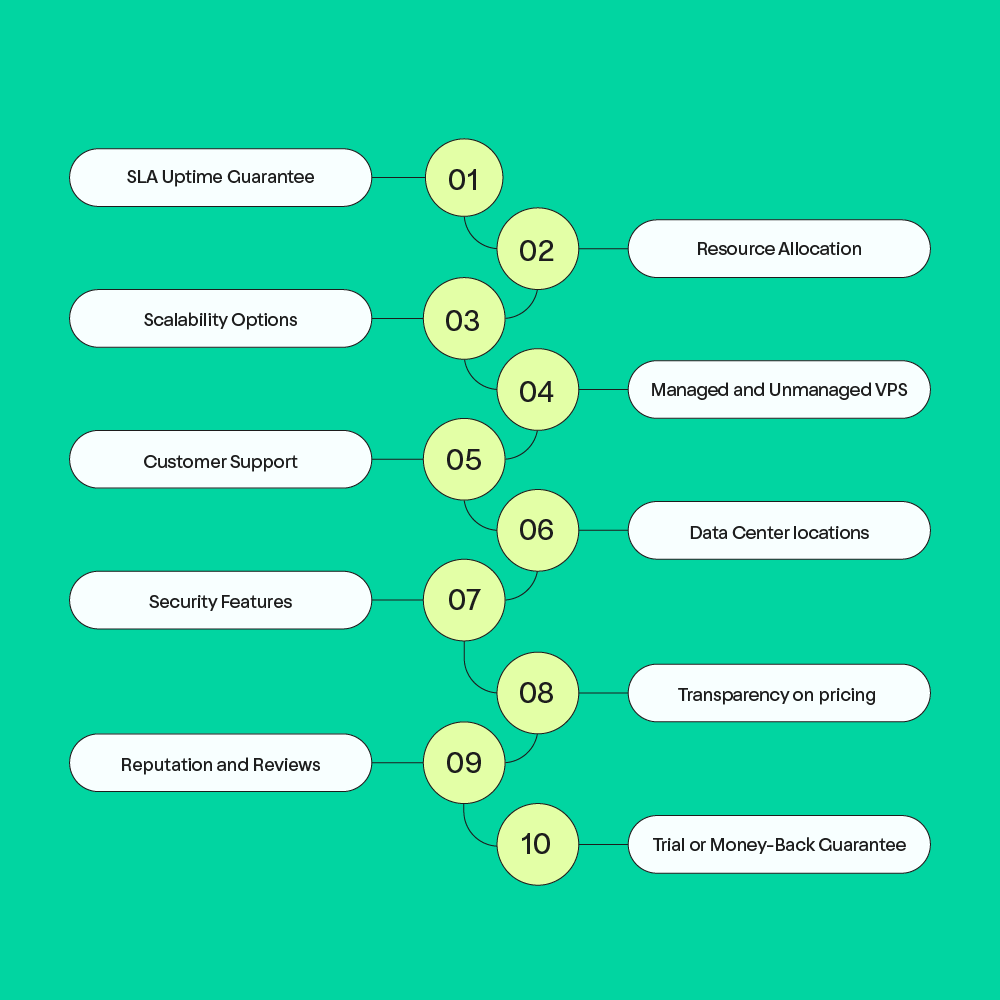Your site is the window of your shop, and your customers look into it first. A slow, unstable and insecure site results in loss of visitors and revenue.
Hosting is the invisible force behind each search, purchase and visit. Virtual server hosting, and more precisely, a VPS virtual private server, is the golden mean of low costs and business-ready resources for many brands.
You should choose VPS hosting when you are outgrowing shared hosting (due to random slowdowns, lack of access to the root, and less security), but you can not afford a dedicated server (it can be too expensive or too powerful).
It offers reliable performance, enhanced isolation and a flexibly configurable stack without making sacrifices on cost-effectiveness or scalability.
What is VPS Hosting
What is VPS hosting meaning?
VPS is an abbreviation of Virtual Private Server. A VPS comes in use when a server is partitioned into a number of virtual issues by means of a hypervisor (virtualization software). Every environment-your VPS, has its operating system, exclusive resources (CPU, RAM, storage) and root.
Moreover, you are able to restart it, update software, do security hardening, and scale your resources without affecting anyone else's environment.
How a Virtual Private Server Works
A hypervisor (e.g., KVM, Xen, Hyper-V) divides a physical computer into a number of separate VMs (virtual machines). Your virtual private server is such a VM. It operates in a manner of a real server
- You have Windows or Linux.
- You have a fixed amount of CPU cores, RAM, and SSD/NVMe storage.
- You are able to attach IP addresses as well as configure firewalls and backups.
- You can vertically scale at any point, aka more CPU/RAM/storage can be added with little to no downtime.
In addition to this, the isolation of VPS instances makes them immune to a spike or security incident on a neighbor site. That is the main advantage of virtual server hosting over shared hosting.
Where VPS Exists Among the Types of Web Hosting
The forms of web hosting that you will see include:
1. Shared Hosting: The cheapest level of entry. Several domains are pooled together due to one server.
2. VPS Hosting (Virtual Private Server): Dedicated access, have root access, more security options. A serious project-level and upstart business.
3. Dedicated Hosting: A physically entire server to a customer. Optimum performance and price.
4. Cloud Hosting: Resources exist on more than one machine; horizontally scalable. A cloud virtual private server is a blend of cloud capabilities and isolation due to VPS.
5. Managed WordPress Hosting: The platform is tuned to WordPress and includes automatic updates and performance tooling.
NOTE: VPS falls in the middle. It is not too expensive and yet strong, not overly rigid and predictable.
Who Needs VPS Hosting and Who Doesn't?
Pick a VPS: virtual private server, in this case.
- Your shared Internet hosting outlet slows you down when the servers are filled.
- You require bespoke software (Node.js applications, Redis, Elastic search, containers).
- You desire to manage PHP versions, nginx/Apache, background workers or cron jobs.
- You have payment processing or sensitive data and need stricter isolation.
- You intend to have various client websites that should be provided with unique environments.
On the other hand, you might not require the VPS, in case:
You are running a plain website with little traffic (shared hosting is acceptable).
You prefer to have a zero ops experience with just WordPress (managed WordPress hosting can be easier).
Your compute/storage or specialized hardware requirement is intense (go dedicated or high-end cloud).
What are the Different Types of VPS Hosting? Detailed View
When others speak of types of VPS hosting, they are referring to some combination of the following types.
Managed VPS hosting vs. Unmanaged VPS hosting
Managed VPS hosting: The company runs server OS updates, security patches, monitoring and sometimes a fine-graining of performance. You concentrate on your application.
Advantages: Low maintenance and upkeep, specialized security, and quick incident response.
Disadvantages: more expensive, less low-level tinkering.
Unmanaged VPS hosting: The provider just gives the server and the network. You do all of the other stuff, such as putting on packages, setting up firewalls, and tweaking things.
Advantages: Lowest cost VPS route, everything is customizable and configurable.
Cons: Needs Linux/Windows systems administration experience and on-call ability.
VPS and Cloud Virtual Private Server
Traditional VPS: The VM is hosted on a single physical machine. Scaling normally refers to scaling up the plan or migration.
Cloud virtual private server: This VM is operated in a cloud environment. CPU/RAM can be scaled continuously, block storage can be added, and snapshots can be used across regions.
By Operating System: Linux VPS or Windows VPS?
Linux VPS: Good choice to host web stacks and containers, and run open source solutions. Reduced licensing price.
Windows VPS: It is best for businesses and applications that require Windows-specific software. Licensing increases the cost.
By Network Variants/Storage
SSD vs NVMe storage: NVMe is more performant in terms of throughput and IOPS that are suitable for busy databases and high-traffic e-commerce.
Standard/premium network: With some VPS providers, there is an option to add better bandwidth/peering or global CDNs.
By Virtualization Technologies: KVM & Xen
KVM (Kernel-based Virtual Machine) Virtualization at the hardware level; good isolation and performance.
Xen / Mature hypervisors are deployed in different enterprise and cloud environments.
The Advantages in VPS Hosting

Where web hosting is concerned, a virtual private server (VPS) is the ideal middle ground between affordability, control, and power. As compared to shared hosting, where a number of websites are competing to have use of the same resources, VPS hosting provides a more stable and secure environment as it uses separate resources that are assigned to each user.
This is because you are able to enjoy an exclusive virtual private server environment without incurring the entire expenses of the physical servers. VPS hosting is a suitable option to achieve stability, speed, and scalability of a business or web development as well as growth in websites.
Dedicated Resources, Reduced Cost
VPS hosting also has dedicated CPU, RAM and storage, and thus provides you with stable performance like a dedicated server but at a much lower cost.
Increased Performance and Reliability
Since all resources are dedicated to your account, no other webmaster will be able to slow down your website because of being a boisterous neighbor.
Better Security
The reason why the VPS environments are separated is to provide less chance of data breach or malware spread among accounts.
Scalability
It is much easier to scale your resources (RAM, storage, bandwidth) up or down according to the growth of your website without a complete migration.
Full Root Access/Control
VPS Web hosting gives you access to administrator privileges, enabling you to deploy custom software, set up servers and launch applications that are not possible with shared web hosting.
Customizable Environment
VPS hosting allows you to customize the environment to your needs, whether that is particular scripts, frameworks, or advanced server settings.
Affordable to Growing Companies
VPS stands out as a viable middle-ground alternative. It has shared hosting on one side and dedicated hosting on the other. It is for websites that have gained enough traffic that they can no longer be supported by shared hosting, but are nonetheless not ready (or able to afford) a dedicated server.
Disadvantages of Virtual Server Hosting

As much as VPS hosting is a powerful balance between the affordability, flexibility and performance aspects, it does not come without its disadvantages. It has more technical requirements than shared hosting, and it is also not as affordable as shared hosting.
Plus, it is more successful when it comes to large businesses or websites. Also, despite dedicated resources, the VPS resources are limited to a lesser extent than a full dedicated virtual private server. Thus, applications that experience ultra-high traffic or enterprise usage levels may eventually outgrow the environment.
To such users, VPS hosting seems less comfortable unless combined with a managed VPS hosting plan that will lighten the technical load.
More Expensive than Shared Hosting
VPS hosting services are more costly than dedicated hosting; however, VPS is cheaper than shared hosting, which may be a downside to hobbyist websites or small websites.
Technical Knowledge Required
If you do not engage managed VPS hosting, you should have a technical background to configure the server, apply the security patches, and maintain the updates.
Limited Resources
Although VPS hosting is dedicated to its resources, it does not offer as much bare power that a full physical dedicated server can.
Problems of Overloaded Nodes
In the case of poorly managed VPS providers, it can happen that when the physical server is oversold with an excessive number of virtual machines, performance deteriorates.
Security Issue
VPS is not vulnerable to design, but misconfiguration, as well as server updates that are not made regularly, can make your site vulnerable.
Not Suitable for High Traffic
Enterprise-level or very large websites with a lot of traffic may end up not fitting VPS hosting and need dedicated or cloud hosting.
Other Types of Web Hosting

Apart from VPS, it is also required to know other types of web hosting to make the right decision.
Shared hosting
Shared hosting represents the most entry-level and budget-friendly web hosting option, comparable to occupation of a single room in a shared flat. You maintain a compact space of your own, yet the kitchen, bathroom, and utilities are used in common with several roommates. Likewise, on a shared hosting plan, your site must share the server’s resources—CPU, RAM, and bandwidth—with upwards of several dozen—indeed, sometimes hundreds—of other sites.
Although this makes the service affordable and simple for novices to set up, it likewise delivers constrained performance, prolonged load times when traffic surges, and a more restricted array of customization options.
However, it works well for small sites or blogs, yet it’s not suitable for businesses that anticipate larger traffic volumes or especially demanding security needs.
VPS hosting
VPS hosting is like residing in a personal apartment within an upscale, multi-tenant building. You hold keys to a separate space with enclosing walls and dedicated utilities. No neighbor can tinker with, granting you both privacy and control.
In the same vein, a VPS virtual private server allocates your own dedicated CPU, RAM, and storage resources on a shared hardware server. You can tailor your hosting environment and deploy the software you require, all while reliably maintaining stable performance without any concern for other sites encroaching.
Alongside that, the hosting provider handles all of the shared infrastructure—hardware upkeep included—thereby positioning VPS hosting as a budget-friendly alternative between shared and dedicated plans.
Dedicated hosting
Dedicated hosting is a lot like owning the entire building rather than a single apartment. The whole suite of resources—electricity, water, and space—is yours exclusively, and you have no neighbors to share them with.
In addition to this, by opting for a dedicated virtual private server, you enjoy complete control of a full physical machine, together with unmatched performance, tight security, and complete customization.
The disadvantage, however, is elevated expense and heightened responsibility: dedicated hosting comes with a steep price tag and is generally most appropriate for enterprises, high-volume sites, or businesses that operate intricate applications where unwavering reliability and ample power are critical.
Cloud Hosting
Cloud virtual private server hosting offers a contemporary and scalable option, with your website running across multiple interconnected servers instead of just a single physical machine. In this configuration, high availability is guaranteed, as a faulty server is automatically replaced by the remaining ones.
By facilitating rapid, on-demand scaling of resources—including CPU, RAM, and storage—cloud hosting proves to be especially versatile. It’s perfectly suited for expanding businesses, e-commerce platforms, and sites that experience high traffic volumes.
WordPress Hosting
WordPress hosting is a specialized hosting setup, purposefully crafted and optimized for WordPress sites. It includes a pre-installed copy of WordPress, automatic updates, heightened security, and frequently WordPress-specific customer support.
Whether a site is built on WordPress or not, users can choose from shared WordPress hosting or managed WordPress hosting.
Reseller Hosting
Reseller hosting enables individuals or companies to acquire hosting resources on their own and, in turn, resell these resources to their own clientele. Among web developers and agencies, this hosting solution is widely favored because it allows them to supply hosting services without having to oversee physical servers.
Colocation Hosting
In colocation hosting, you lease space in a data center to situate your own dedicated physical server hardware. The hosting provider furnishes power, bandwidth, cooling, and physical security, leaving you in full control of the server’s hardware and software. This option is ideal for businesses that have in-house IT teams requiring custom server configurations.
Bottom line: VPS offers you the majority of control characteristics of a dedicated server, but at a significantly lower price.
VPS Hosting vs. Other Hosting Types (Side-by-Side)
Below is a quick, practical comparison. Use it to sanity-check whether a virtual private server fits your needs today and six months from now.
| Feature | Shared Hosting | VPS Hosting (Virtual Private Server) | Dedicated Hosting | Cloud Hosting |
|---|---|---|---|---|
| Monthly Cost (typical) | Lowest | Mid-range | Highest (hundreds+) | Flexible, usage-based |
| Performance | Inconsistent; neighbors can slow you down | Predictable; dedicated slice of CPU/RAM | Maximum, you own the hardware | High; can scale across nodes |
| Scalability | Limited; plan jumps | Moderate; vertical scaling | Limited to box specs | Excellent; vertical + horizontal |
| Security | Basic; shared OS | Strong isolation per VM | Very strong; single tenant | Strong; depends on provider config |
| Control/Root Access | Minimal | Full root/admin | Full control | Varies by cloud service |
| Best For | Tiny sites, prototypes | Growing sites, e-commerce, apps | Enterprise, high traffic, bespoke stacks | SaaS, unpredictable traffic, global scale |
Takeaway: VPS gives you most of what businesses need—control, performance, and predictable costs without the complexity of a full cloud arrangement or the expense of a dedicated box.
Pricing: The cost of a VPS
The cost increases or decreases depending on the region, hardware, storage type, bandwidth and whether it is managed or unmanaged. From a price perspective, VPS hosting provides options that serve budget-conscious users as well as performance-driven businesses.
As an example, WebSouls’ Pak-based VPS hosting lineup begins at 6,280PKR per month for their PK VPS-1 Plan, which delivers a 1 vCore CPU, 2 GB RAM, 40 GB storage, and 100 GB bandwidth. Additionally, with optional managed support and cPanel/WHM available.
Moving to the PK VPS-2 tier bumps the fee to 7,638 per month and expands CPU resources to two vCores, offering 4 GB RAM, 120 GB disk space, and 200 GB in total bandwidth.
Heading over to the cloud side, WebSouls, the best VPS providers, offers a Cloud Basic VPS plan that is available for around 3,339PKR per month. It comes equipped with 2 vCore CPU, 4 GB DDR5 RAM, 40 GB NVMe SSD storage, and a large 20 TB bandwidth, alongside the bundled control panel and Encrypt SSL.
These pricing levels demonstrate how VPS hosting can range from an economical entry-level setup to performance-boosted configurations for expanding websites, either through a package-based VPS or cloud-based solutions.
How to Select the Right VPS Providers
 `
`
The choice of the appropriate VPS providers may be tiring since many companies propose various pricing options, features and service levels. But a careful decision is paramount because your provider directly influences your uptime, the performance of your websites, and scalability over the long term.
This punch list can help you assess VPS providers prior to your commitment to use their services:
1.SLA Uptime Guarantee
Seek companies with at least 99.9 percent uptime. This will make it so that visitors of your site are not constantly denied service by your site crashing or cutting off.
2.Resource Allocation
See how much CPU, RAM and storage space the provider guarantees. A good VPS virtual private server hosting company will not oversell resources, and your site can get what you purchased.
3.Scalability Options
The need can change with time. Select the provider that will enable seamless upgrades to more resources, VPS, or migration to a cloud virtual private server without service interruptions.
4.Managed and Unmanaged VPS
If your level of technical expertise is low, go with managed VPS hosting where the hosting provider updates servers, patches, and monitors them. Unmanaged VPS may be a good option if you are interested in wanting complete control and cost savings.
5.Customer Support
Quality VPS providers can provide 24/7 customer support either via live chat, phone, or ticket support. Ease and quick troubleshooting mean that you will save hours in fixing problems.
6.Data Center locations
Where the server is geographically located influences the speed of a website. Select a provider with data centers that are near your target demographic to load more quickly.
7.Security Features
Make sure the VPS host has security features such as firewalls, DDoS protection and malware scanning, as well as regular backups to keep your site safe.
8.Transparency on pricing
Stay remote from unregulated charges. Compare the renewal fees, bandwidth quotas and any extra resource fees.
9.Reputation and Reviews
Investigate customer reviews and case studies to find out how well the provider works in practice.
10.Trial or Money-Back Guarantee
A smart VPS host will offer some trial period or money-back guarantee, so that you can see what they can offer before making a commitment or long-term deal.
Conclusion
Hosting is a major key in the digital kingdom that can either make or break your online existence.
VPS hosting has the best cost-performance-control balance. It suits those businesses that are too large to be placed on shared hosting but too small to afford a dedicated server with its hundreds of dollars in cost.
Managed VPS hosting, a cloud VPS or even a dedicated VPS - that is only secondary compared to that key advantage you get. Signing up for VPS hosting with Websouls, you will get your own resources, a 99.99% uptime guarantee, and unmatched security at super affordable prices. So, get your online platform to grow.
Accelerate your site, deliver greater security and have space to grow with VPS hosting.






